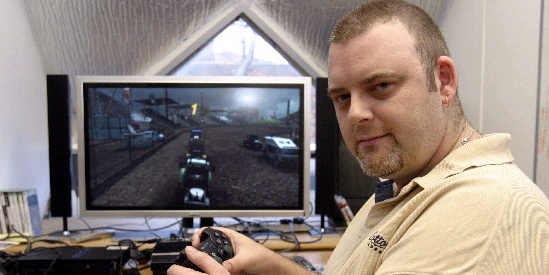The changing video games industry has claimed another Dundee victim with the news that Cohort Studios is to close, with the loss of 25 jobs.
Cohort, based at Seabraes in the Greenmarket, had already announced it was paying off 27 staff last summer, as a result of market forces. That announcement came just days after Realtime Worlds went into administration, with the loss of almost 200 jobs.
At the time, Cohort chief executive Lol Scragg said he was hopeful that business would pick up and the company would be able to start hiring again. However, he announced on Thursday that the studio is to close altogether, a victim of a decline in the market for boxed console games.
“It really is with great sadness that we have been left with no alternative but to start winding down,” he said. “Making all 25 employees redundant is genuinely heartbreaking. It goes without saying that we wish them all every success, as they really are a very talented team and we are actively trying to seek employment for each and every one of them.
“Entering 2011, we looked to change the direction of our business but we ran out of time.”
Cohort Studios was founded in 2006 by Mr Scragg, Darran Thomas and Bruce McNeish and had worked on several well-known titles including the Buzz! and Lemmings.
Its website says it had grown to become the third largest developer in Scotland, adding the now ironically upbeat note, “While avoiding the many mistakes we had seen at previous companies we have a firm eye on where the games industry is moving.”
Dundee’s City Development convener Will Dawson said the loss of another computer games firm was especially hard, coming so soon after the demise of Realtime Worlds.
“It is obviously a disappointment. There are 25 people being made redundant and it is obviously extremely sad for them.”
Mr Dawson said the much-discussed issue of tax breaks for the computer games industry is bound to be brought to the fore again by the city’s latest loss.
Though tax breaks may not have been the answer to all the company’s problems, better support from Government might have allowed Cohort enough breathing space to make the changes needed to ensure its survival, he suggested.
He added that, despite the blow, “Dundee is still a world leader in the digital field, with a lot of very, very talented people coming out of Abertay University.
Alan Mitchell, chief executive of Dundee and Angus Chamber of Commerce, said that while the news was sad, it was no reason for the city to lose faith in the industry.
“Obviously, while it’s disappointing and a great shame for the people who are losing their jobs, it is important to take a balanced view. This is still a relatively young industry which is going to go through lots of changes, with new markets, new technologies and new applications.”
While there may be good news from new companies setting up and bringing jobs to Dundee, there could also be some unfortunate casualties along the way.
“Overall, the sector has a very bright and positive future with a lot of talented, hard-working and ambitious people and I am confident it will continue to grow and be a major success for the city in the years ahead,” added Mr Mitchell.
Dundee West MP Jim McGovern has been a vocal supporter of tax breaks for the computer games industry and said that while they were not “the be all and end all,” they would “certainly be a factor in maintaining the industry in Dundee.
“I am extremely disappointed to hear of this closure and the resulting job losses,” he said. “After last year’s General Election the first thing that the Conservative/Liberal Democrat coalition government did in their budget was to undo the previous Labour government’s commitment to tax breaks for the computer games industry.
“I said then it could only be detrimental to the industry, and that remains my opinion. I will continue to press the coalition government to provide incentives for the computer games industry to remain in the UK and, in particular, in Dundee,” he said.
